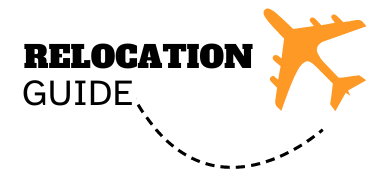I was asked How to Relocate from Nigeria to Switzerland after sharing my previous post. Relocating from Nigeria to Switzerland is a significant life decision that can offer exciting opportunities, from picturesque landscapes to a high standard of living. Whether you’re moving for work, study, or personal reasons, this guide will walk you through the entire process step by step. We’ll cover the various relocation pathways to Switzerland, visa requirements, and essential tips to make your transition smoother.
How to Relocate from Nigeria to Switzerland
To relocate from Nigeria to Switzerland, first, determine your reason, research Switzerland, choose the right pathway (employment, education, family, or business), meet visa requirements, prepare for the move (accommodation, language, finances, healthcare, cultural adjustment), arrive, and integrate. It’s an exciting journey with proper planning and patience.

Part 1: Deciding to Relocate
This part focuses on knowing your reason for the relocation and what you should know about Switzerland. Here’s a more detailed breakdown of these:
1.1 Understand Your Reasons
Before embarking on the process of relocating to Switzerland, it’s essential to have a clear understanding of why you want to make this move. Your reasons for relocating will impact various aspects of your journey, including the visa type you’ll need, where you’ll settle in Switzerland, and the kind of support you might require. Here are some common motivations:
Employment
You might be moving to Switzerland for a job opportunity. In this case, it’s crucial to secure a job offer before you start planning your relocation. Swiss employers often prefer highly skilled workers, so having a specialized skill set can be a significant advantage.
Education
If your goal is to pursue higher education in Switzerland, you’ll need to research universities and programs that align with your academic and career goals. This might involve preparing for standardized tests or meeting specific academic requirements.
Family
Some individuals relocate to Switzerland to join family members who are already residents. If you have immediate family members in Switzerland, you can explore family reunification options.
Lifestyle Change
Perhaps you’re seeking a change in your quality of life, a different cultural experience, or a safer environment. Understanding your desire for a lifestyle change will help you choose the right Swiss city or region to call home.
1.2 Research Switzerland
Switzerland is a diverse and beautiful country with a lot to offer, but it’s essential to research various aspects of the country before making the move. Here are some key areas to explore:
Cultural Diversity
Switzerland has four official languages—German, French, Italian, and Romansh. The language spoken in your chosen region will influence your daily life and interactions.
Cities and Regions
Research different Swiss cities and regions to find the one that best suits your preferences and needs. For example, Zurich is known for its bustling business environment, while Geneva is a hub for international organizations.
Cost of Living
Switzerland is renowned for its high standard of living, but it also comes with a relatively high cost of living. Research the cost of housing, transportation, healthcare, and other essential expenses.
Education
If you have children or plan to pursue further education, research the Swiss education system. Switzerland offers a high-quality education, but it can be quite competitive.
Healthcare
Switzerland boasts an excellent healthcare system, but it’s essential to understand how health insurance works and ensure you have adequate coverage upon arrival.
Culture and Traditions
Familiarize yourself with Swiss customs and traditions, as they may differ from what you’re accustomed to in Nigeria.
Part 2: Choosing Your Switzerland Relocation Pathway
This part focuses on choosing the right relocation pathway to Switzerland. Depending on your goals and circumstances, you may have different options for moving to Switzerland. Here’s a more detailed breakdown of the various pathways:
2.1 Employment
a. Find a Job
Before making the move, it’s essential to secure a job in Switzerland. While some people may decide to move and then search for employment, having a job offer beforehand is highly recommended. Swiss employers often seek highly skilled and specialized workers, so having a competitive skill set is advantageous.
b. Work Visa
Once you have a job offer, your employer will typically initiate the work visa application process on your behalf. Switzerland differentiates between non-EU and EU/EFTA (European Free Trade Association) citizens:
EU/EFTA Citizens
Citizens of EU/EFTA countries have more straightforward access to the Swiss job market due to bilateral agreements. They usually need to register with the local authorities within three months of arrival, and a work permit is generally issued without much hassle.
Non-EU/EFTA Citizens
If you’re not from an EU/EFTA country, the process can be more complex. Your employer will need to demonstrate that your skills are not readily available within the Swiss or EU/EFTA labor market. The work permit application involves submitting various documents, including a valid employment contract, proof of qualifications, and proof of accommodation.
2.2 Education
a. Research Universities
Switzerland is home to several prestigious universities and research institutions. Research these institutions and find the one that best aligns with your educational goals and interests. Popular choices include the University of Zurich, ETH Zurich, and the University of Geneva.
b. Student Visa
After gaining admission to your chosen Swiss educational institution, you’ll need to apply for a student visa. Here are some key steps:
Proof of Enrollment
Provide proof of your enrollment or acceptance from the educational institution.
Financial Stability
Demonstrate that you have sufficient funds to cover your tuition fees and living expenses in Switzerland.
Health Insurance
Secure comprehensive health insurance coverage, as it is mandatory for all students in Switzerland.
2.3 Family Reunion
a. Joining Family
If you have immediate family members (spouse, parents, or children) already residing in Switzerland, you may be eligible for family reunification. The Swiss authorities often grant family reunion visas to help keep families together.
Requirements may vary depending on your relationship with the family member in Switzerland, so it’s crucial to consult the Swiss embassy or consulate for precise details and documentation requirements.
2.4 Start a Business
a. Business Plan
If you’re an entrepreneur looking to start a business in Switzerland, you’ll need a well-structured business plan. Your plan should outline your business idea, its potential for success, and how it will contribute to the Swiss economy.
b. Entrepreneur Visa
After developing your business plan, you can apply for an entrepreneur visa. However, this process often requires substantial investment capital. Switzerland encourages entrepreneurial ventures but requires that you invest a significant amount of money in the country.
The visa application process involves demonstrating the financial viability of your business plan and providing evidence of your commitment to the Swiss market.
Choosing the right relocation pathway depends on your personal circumstances, goals, and qualifications. It’s essential to research and understand the specific requirements and processes associated with your chosen pathway. Seek guidance from the Swiss embassy or consulate in Nigeria and consider consulting with immigration experts to navigate the complexities of the Swiss immigration system successfully.
Part 3: Visa Requirements and Application for Switzerland
This part focuses on visa requirements and the application process for relocating from Nigeria to Switzerland. Obtaining the correct visa is a critical step in the relocation process, as it allows you to legally stay and pursue your intended purpose in Switzerland. Here’s a detailed explanation of Part 3:
3.1 Schengen Visa
Before you apply for a specific Swiss visa, it’s important to determine whether you need a Schengen visa. The Schengen Area comprises 26 European countries, including Switzerland, that have abolished internal border controls, allowing for seamless travel within the region.
Short-Term Stay
If your intended stay in Switzerland is for tourism, business meetings, attending a conference, or visiting friends and family for a short period (up to 90 days within a 180-day period), you generally need a Schengen visa.
3.2 Swiss Visa Types
Switzerland offers various types of visas to accommodate different purposes of travel. It’s crucial to select the visa type that corresponds to the reason for your relocation:
Tourist Visa
If you plan to visit Switzerland for leisure or sightseeing, you’ll need a tourist visa.
Work Visa
For individuals relocating to Switzerland for employment purposes, a work visa is required. This category may include skilled workers, researchers, or employees of Swiss companies.
Student Visa
If you’re pursuing higher education in Switzerland, you’ll need a student visa. This visa allows you to enroll in a Swiss educational institution.
Family Reunion Visa
If you intend to join family members who are already Swiss residents, such as a spouse or immediate family member, you can apply for a family reunion visa.
Business Visa
For those attending business-related events, meetings, negotiations, or conferences in Switzerland, a business visa is necessary.
3.3 Application Process
Gather Required Documents
The application process for a Swiss visa involves collecting specific documents that demonstrate your eligibility and intent. While the exact requirements may vary based on the type of visa you’re applying for, here are some common documents:
Passport
Ensure your passport is valid for at least three months beyond your intended stay in Switzerland.
Visa Application Form
Complete the visa application form accurately and truthfully. You can obtain this form from the Swiss Embassy or Consulate.
Passport-Sized Photographs
Provide passport-sized photographs that meet Swiss visa photo requirements.
Proof of Travel Insurance
Show proof of travel insurance that covers medical expenses and repatriation for the entire duration of your stay in Switzerland.
Proof of Accommodation
Provide evidence of where you will stay during your time in Switzerland, such as a hotel reservation or a letter of invitation from a host.
Proof of Financial Means
Demonstrate that you have sufficient financial means to cover your expenses while in Switzerland. This may include bank statements, sponsorship letters, or a financial guarantee.
Travel Itinerary
Present a detailed travel itinerary, including flight reservations and travel plans within Switzerland.
Health Insurance
Switzerland mandates that all residents, including visa holders, have adequate health insurance coverage. Ensure you have valid health insurance in place before arriving in Switzerland.
Submit Application
Once you have gathered all the required documents, you can submit your visa application. Here’s what to expect:
Location
Visit the Swiss Embassy or Consulate in Nigeria to submit your application. It’s recommended to make an appointment in advance.
Interview
You may be required to attend an interview as part of the application process. Be prepared to answer questions about your travel plans, intentions, and supporting documents.
Biometric Data
As part of the application process, your biometric data, including fingerprints, may be collected.
Processing Time
Visa processing times can vary based on your nationality, visa type, and the volume of applications received. It’s advisable to apply well in advance of your planned travel date to allow for processing.
In summary, obtaining a Swiss visa is a crucial step in the relocation process. Understanding the specific visa type you need, gathering the required documents, and following the application process diligently will increase your chances of obtaining the visa necessary for your relocation from Nigeria to Switzerland. Be sure to consult with the Swiss Embassy or Consulate for the most up-to-date and detailed visa requirements for your specific situation.
Part 4: Preparing for the Move
This part focuses on preparing for the move to Switzerland, covering essential aspects such as accommodation, language, finances, healthcare, and cultural adjustment. Let’s dive into each of these in detail:
4.1 Accommodation
Renting
Many newcomers to Switzerland initially opt to rent a property. Renting offers flexibility, which can be advantageous if you’re unsure about your long-term plans or if you’re moving for a specific job or study program. To find rental properties, you can explore online platforms, work with local real estate agents, or check classified ads in newspapers.
Buying
If you plan to stay in Switzerland permanently or for an extended period, you may consider buying a home. Switzerland has a stable real estate market, and owning a property can be a good long-term investment. However, purchasing property can involve substantial costs, including property taxes and maintenance fees.
4.2 Language
Switzerland has four official languages: German, French, Italian, and Romansh. The language you should learn depends on the region where you plan to live:
German
Spoken in the majority of Switzerland, including Zurich and Bern.
French
Predominantly spoken in the western part of Switzerland, including Geneva and Lausanne.
Italian
The language of choice in the southern region, including Ticino.
Romansh
A minority language spoken in certain cantons.
Learning the local language is essential for daily interactions, whether it’s for work, socializing, or handling everyday tasks like grocery shopping and understanding official documents. Enroll in language courses to help you become proficient in the language spoken in your chosen region.
4.3 Finances
Managing your finances is a critical aspect of preparing for your move to Switzerland:
Bank Account
Open a Swiss bank account after your arrival. Having a local bank account will facilitate your financial transactions and allow you to manage your funds more efficiently.
Currency Exchange
Consider exchanging your currency for Swiss Francs (CHF) at favorable rates before your move. You can do this at your local bank or a currency exchange service. This can help you save on exchange fees and get a better rate.
Financial Planning
Create a financial plan to ensure you have sufficient funds to cover your initial expenses, including accommodation, transportation, and living costs.
4.4 Healthcare
Switzerland has a world-renowned healthcare system, but it’s essential to be prepared:
Health Insurance
Health insurance is mandatory in Switzerland. You must arrange for comprehensive health insurance coverage before your arrival. You can choose from various insurance providers and plans. Make sure to understand the coverage and choose a plan that suits your needs.
Healthcare Facilities
Familiarize yourself with the healthcare facilities in your chosen region. Switzerland offers high-quality medical services, but knowing where to go in case of medical emergencies or routine healthcare needs is important.
4.5 Cultural Adjustment
Adjusting to a new culture is a crucial part of the relocation process:
Embrace Local Customs
Switzerland has its own customs and traditions. Be open to embracing them and show respect for Swiss culture.
Social Norms
Familiarize yourself with Swiss social norms and etiquette. Punctuality, politeness, and a strong work ethic are highly valued.
Network and Make Friends
Building a social network is essential for a smooth transition. Attend local events, join clubs or groups related to your interests, and engage in community activities to meet people and make friends.
Remember that adjusting to a new culture takes time, and it’s normal to experience some challenges along the way. Be patient with yourself and take advantage of any integration programs or support services offered to newcomers in Switzerland.
By preparing thoroughly in these areas, you can ensure a more seamless transition and make the most of your new life in Switzerland.

Part 5: Arriving in Switzerland
This part focuses on what to expect and do upon your arrival in Switzerland.
5.1 Switzerland Residence Permit
Upon Your Arrival
After your arrival in Switzerland, it’s essential to complete various administrative procedures promptly. One of the most crucial steps is to register with the local authorities.
Residence Permit
Depending on your visa type and the purpose of your stay (e.g., work, study, family reunion), you will need to apply for a residence permit. This permit allows you to stay in Switzerland for an extended period, beyond the initial visa’s validity.
Registration with Local Authorities
In Switzerland, each canton (similar to a state or province) has its own residency registration process. Typically, you’ll need to visit your local Gemeinde (municipality) or Residents’ Registration Office within a few days of your arrival.
Required Documents
The exact documents required for registration and residence permit application may vary depending on your canton, but commonly requested documents include:
- Passport or ID
- Visa (if applicable)
- Proof of address in Switzerland
- Proof of financial means or employment contract
- Health insurance certificate
Biometric Data
You may also be required to provide biometric data, such as fingerprints, during the registration process.
Residence Permit Types
Switzerland offers various types of residence permits, including L permits for short-term stays, B permits for temporary residency, and C permits for permanent residency. The specific type of permit you receive will depend on your circumstances.
5.2 Integration
Integration Courses
Switzerland places a strong emphasis on integration, especially for newcomers. Many cantons offer integration courses that help you adapt to Swiss society and culture. These courses typically cover language instruction, cultural orientation, and information about Swiss laws and customs.
Language
Proficiency in one of Switzerland’s official languages (German, French, Italian, or Romansh) is crucial for integration. If you’re not already fluent in the local language, consider enrolling in language courses to improve your communication skills.
Cultural Understanding
Learning about Swiss culture, traditions, and societal norms is essential for successful integration. This knowledge will help you navigate daily life, build relationships, and feel more at home in Switzerland.
5.3 Networking
Building a Social Network: Building a social network is vital to ease your transition and feel more connected to your new community. Here are some ways to expand your social circle:
- Local Events: Attend local events, festivals, and gatherings to meet people and learn about Swiss culture.
- Join Clubs and Groups: Switzerland offers a wide range of clubs and groups, from sports and hobbies to professional and expatriate organizations. Joining these groups is an excellent way to meet like-minded individuals.
- Community Activities: Participate in community activities and volunteer work to contribute to your local area and meet new people.
- Online Communities: Explore online forums and social media groups for expatriates and newcomers to Switzerland. These platforms can provide valuable information and opportunities to connect with others in a similar situation.
- Workplace Networking: If you relocated for work, don’t underestimate the value of building relationships with colleagues. Attend work-related events and team-building activities to get to know your coworkers.
Be Open and Approachable: Swiss people are known for being polite but reserved. While it may take time to form deep friendships, being open, approachable, and showing interest in local customs will help you integrate more effectively.
In conclusion, the arrival phase of your relocation to Switzerland is a critical period for settling in and building a life in your new home. Registering with the local authorities, obtaining the necessary residence permits, and actively engaging in integration and networking activities will help you adapt to Swiss life more smoothly. Remember that patience and an open mindset will be your allies as you navigate this exciting new chapter in Switzerland.

Final Thoughts
Relocating from Nigeria to Switzerland can be an exciting adventure, but it requires careful planning and preparation. Whether you’re moving for work, education, family, or personal reasons, understanding the visa requirements and navigating the Swiss bureaucracy is essential.
Remember, each individual’s journey is unique, and challenges may arise along the way. Stay resilient, embrace the Swiss way of life, and make the most of this opportunity to create a fulfilling life in this beautiful country.
If you’re considering making the move, start by researching your specific visa requirements and gathering the necessary documents. Seek advice from expatriates who have successfully relocated to Switzerland, and don’t hesitate to consult with immigration experts if needed.
Relocating to Switzerland is a significant step towards a brighter future, and with the right information and mindset, you can turn your dreams of living in this stunning country into a reality. Good luck with your relocation journey!
For more relocation tips, guides check our website relocate.com.ng

